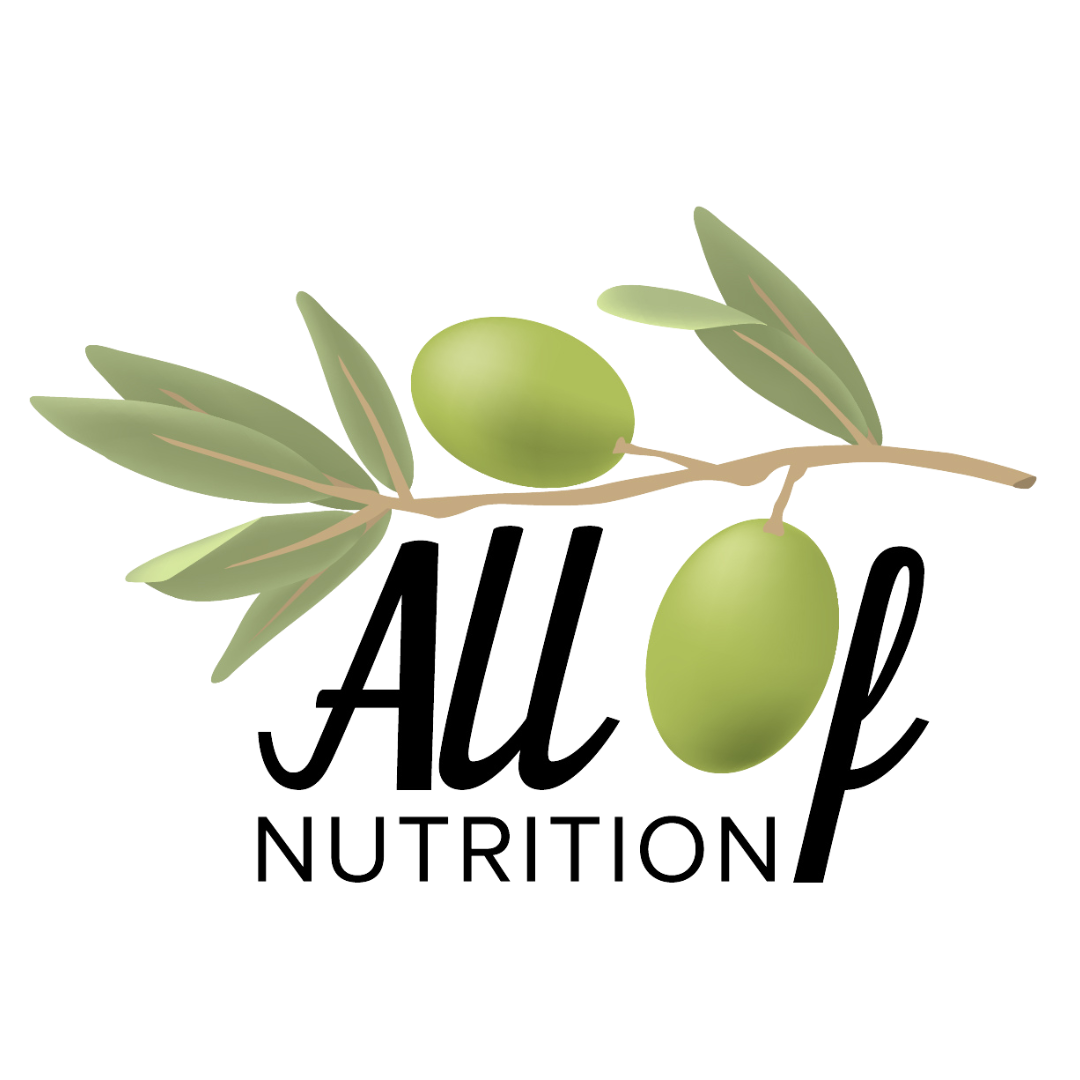
Your Key to Success with The Fertility Diet
About 15-25 percent of couples are unable to achieve pregnancy after 12 months of trying to conceive. If this is you, you are not alone. The question I want to answer for you today is whether nutrition can help to improve those odds and increase the chances of conception. The good news is that a growing body of research suggests that, yes, nutrition may play a few key roles in improving fertility for both women and men. That’s why I am sharing with you these tips about the fertility diet.
It may not be surprising to know that sub-optimal lifestyles, like eating a poor diet and not maintaining physical activity, are linked with lower fertility. Eating a nutrient-rich diet is recommended for everyone—especially those actively trying to conceive. Recent studies show that there are certain dietary patterns, foods, and nutrients that may help women and men when it comes to fertility. Some foods and nutrients are linked to a more balanced menstrual cycle and ovulation, higher numbers of high-quality sperm, and a shorter time to get pregnant.
Before we address nutritional factors that are linked to higher fertility in women or men separately, let’s first go over foods and nutrients that may help or hinder fertility in both women and men—starting with the overall dietary pattern.
[Medical disclaimer: Note that there is growing evidence that nutrition can play an important role in fertility, but it is not the only factor. Also, nutrition is not an effective method of birth control. Please see your healthcare professional or book an appointment with me to discuss your personal needs and goals when it comes to reproductive health.]
A nutrient-rich, anti-inflammatory dietary pattern is linked to higher fertility in both women and men.
If there is one main takeaway from the growing research linking nutrition and fertility, it’s that an overall healthier diet is beneficial—for both women and men.
Inflammation is a normal process your body uses to help it heal from infections and injuries. However, regularly consuming inflammatory foods can result in long-term, low-grade inflammation that may negatively impact fertility. In women, chronic inflammation can disrupt ovulation and a regular menstrual cycle, and can contribute to endometriosis, reduced ability of a fertilized egg to implant, and more frequent miscarriages. In men, chronic inflammation can reduce sperm quality and quantity.
People who eat more inflammatory diets that are higher in fast foods, sugary drinks, and lower in fruits and vegetables may take longer to become pregnant than those with healthier dietary patterns. Studies show that nutritious anti-inflammatory dietary patterns such as the Mediterranean diet are linked with greater chances of having successful pregnancies, whether using fertility treatments or not. Women who eat a Mediterranean diet seek medical help for infertility only about half as often as those who don’t eat this way. Men who consume the Mediterranean diet have higher amounts of high -quality sperm.
Anti-inflammatory diets like the Mediterranean diet are nutrient-rich and anti-inflammatory because they contain many fruits, vegetables, legumes, whole grains, and poultry. They may also include fish, nuts, seeds, olive oil, and soy-based foods. Dairy products, red or processed meats, and sweets may be consumed, but in smaller amounts. In general, anti-inflammatory diets are high in unsaturated and omega-3 fats, fiber, vitamins, and minerals and are low in sugars, refined carbohydrates, and saturated and trans fats.
Foods and nutrients linked to higher fertility in both women and men.
Beyond eating a nutrient-rich, anti-inflammatory diet, there are several interesting links between specific foods and nutrients and their potential impact on fertility in both women and men. These include regularly enjoying seafood, getting enough Vitamin B12, and reducing intake of trans fats and sugar-sweetened beverages.
Enjoy seafood weekly
At least one study shows that couples who ate more seafood got pregnant sooner than those who rarely ate seafood. The best results with the shortest time to pregnancy were achieved when both partners consumed eight 4-ounce servings during each menstrual cycle. The average menstrual cycle is about four weeks, so the seafood intake goal, according to this study, is about two servings per week. Over 90 percent of the couples who enjoyed eight or more servings per cycle got pregnant within 12 months, compared to 79 percent of those who ate seafood less often.
This link between seafood and pregnancy may be related to the positive effects the omega-3 fatty acids have on ovulation, menstrual cycles, and sperm quality, although researchers aren’t completely sure.
When choosing seafood for a healthy pregnancy, it’s important to keep in mind that not all seafood is created equal. If you are trying to get pregnant, focus on seafood that is lower in persistent environmental chemicals and mercury. This means eating salmon, sardines, scallops, and shrimp, while staying away from larger, predatory fish like shark, swordfish, king mackerel, and tilefish. It’s also recommended to avoid raw seafood during pregnancy as it may pose a risk of bacteria or viruses.
Get enough Vitamin B12
Women undergoing assisted reproductive technology who have higher levels of Vitamin B12 are more likely to have a successful pregnancy than those with lower levels of Vitamin B12. Vitamin B12 supplements may help fertility by increasing sperm number and quality and protecting sperm cells from DNA damage.
According to the National Institutes of Health, adults should aim for 2.4 mcg of Vitamin B12 each day; 2.6 mcg if pregnant, and 2.8 mcg if breastfeeding. Vitamin B12 is naturally present in animal foods (meat, poultry, fish, eggs, and dairy), fortified breakfast cereals, and nutritional yeasts; however, the body is able to absorb more Vitamin B12 from dietary supplements than from foods.
Reduce intake of artificial trans fats
In addition to getting more healthy omega-3 fats from seafood, reducing intake of less-healthy trans fats may help with fertility as well. According to researchers at Harvard, trans fats are related to lower fertility in women and lower semen quality in men.
Trans fats are naturally found in dairy and meat from ruminant animals, however they’re also artificially created when unsaturated fats are processed to become partially hydrogenated. Hydrogenation is done during the manufacturing process to change liquid oils into solid fats at room temperature. The good news is that these artificial trans fats (“partially hydrogenated oils”) are being phased out of the food supply in the U.S. because of their detrimental effects on heart health. When it comes to trans fats in dairy, there do not seem to be any negative effects on fertility for women who regularly consume dairy products.
Cut down on sodas and energy drinks
Several studies show that both women and men who consume sugar-sweetened beverages—especially sodas or energy drinks—tend to have lower fertility than those who don’t drink them. The reduced fertility was found at levels as low as seven drinks per week (about one per day). The good news is that these fertility effects do not seem to translate to those who enjoy diet sodas and fruit juice.
A possible reason for this link may be that sugar may interfere with women’s reproductive hormones, egg maturation, and ovulation, while in men, there is a lower sperm concentration.
Foods and nutrients that may help women’s fertility.
A recent study from Harvard found that certain nutrients have positive effects for women who are trying to conceive included folic acid and soy isoflavones.
Folic acid supplements are highly recommended
Some studies show that women who take multivitamins containing folic acid had more regular ovulation and were able to get pregnant sooner.
Folic acid, also known as Vitamin B9, is recommended before and during pregnancy because of its proven role in reducing the risk for neurological problems in the developing baby, like spina bifida. This is why folic acid is commonly available in prenatal multivitamins. Some women may need higher doses of folic acid than average, so book an appointment to find out the amount that’s right for you.
Folic acid’s positive effects on women’s fertility are due to its role as an enzyme that aids in the successful synthesis of DNA and RNA in the body, both of which are essential for optimal reproduction.
Soy isoflavones
The impact of soy on fertility has been studied because soy is the main source of plant-based estrogens (estrogen is a reproductive hormone). Most studies done in humans show that it does not have a harmful effect (despite some initial animal studies), and in fact, soy may be helpful for fertility. There is a growing association of successful pregnancies for women who consume soy or isoflavone supplements, particularly for women who also use fertility treatments.
Foods and nutrients that may help men’s fertility.
When it comes to sperm quality, antioxidant supplements might help.
Antioxidant supplements
Studies show that men who supplement with antioxidants tend to have higher quality semen. Decreased levels of antioxidants have been linked with negative impacts on sperm, including DNA damage, membrane damage, and reduced motility.
Several vitamins have antioxidant properties including vitamins C and E, beta-carotene (pre-vitamin A), folic acid, coenzyme Q10, and the essential minerals selenium, and zinc. It’s important to note that too-high levels of antioxidants may be detrimental, so book an appointment with us for an appropriate supplementation protocol for your health goals.
Final Thoughts on the Fertility Diet
It can be difficult to struggle with fertility, and research shows that nutrition can help both women and men. Consuming a more nutrient-dense, anti-inflammatory diet high in fruits, vegetables, legumes, whole grains, poultry, seafood, and healthier oils is recommended. Also, some certain foods and nutrients have been linked to higher chances of a successful pregnancy. Both women and men can enjoy seafood twice per week, ensure they get enough Vitamin B12, and lower intakes of artificial trans fats and sugar-sweetened beverages. Women can benefit by taking folic acid supplements and, if also using fertility treatments, eat soy or take soy isoflavones. Men can benefit from supplementing with antioxidants.
Need help planning and making nutritious changes to your meals and supplement regimens? Our team of Registered Dietitians would love to help!
Wondering how to add more anti-inflammatory foods into your current dietary lifestyle? Want some delicious, healthier alternatives to sodas and energy drinks? Need recommended high-quality supplements? Book an appointment with All of Nutrition today to see if our services can help you.
References
Alesi, S., Villani, A., Mantzioris, E., Takele, W. W., Cowan, S., Moran, L. J., & Mousa, A. (2022). Anti-Inflammatory Diets in Fertility: An Evidence Review. Nutrients, 14(19), 3914. https://doi.org/10.3390/nu14193914
https://pubmed.ncbi.nlm.nih.gov/36235567/
https://www.ncbi.nlm.nih.gov/pmc/articles/PMC9570802/
American Board of Obstetrics and Gynecology. (2021, June). Gender Language Disclaimer. https://www.abog.org/gender-language-disclaimer
Aoun, A., Khoury, V. E., & Malakieh, R. (2021). Can Nutrition Help in the Treatment of Infertility?. Preventive nutrition and food science, 26(2), 109–120. https://doi.org/10.3746/pnf.2021.26.2.109
https://www.ncbi.nlm.nih.gov/pmc/articles/PMC8276703/
Gaskins, A. J., & Chavarro, J. E. (2018). Diet and fertility: a review. American journal of obstetrics and gynecology, 218(4), 379–389. https://doi.org/10.1016/j.ajog.2017.08.010
https://www.ncbi.nlm.nih.gov/pmc/articles/PMC5826784/
Gaskins, A. J., Sundaram, R., Buck Louis, G. M., & Chavarro, J. E. (2018). Seafood Intake, Sexual Activity, and Time to Pregnancy. The Journal of clinical endocrinology and metabolism, 103(7), 2680–2688. https://doi.org/10.1210/jc.2018-00385
https://academic.oup.com/jcem/article/103/7/2680/5001729?login=false
Hatch, E. E., Wesselink, A. K., Hahn, K. A., Michiel, J. J., Mikkelsen, E. M., Sorensen, H. T., Rothman, K. J., & Wise, L. A. (2018). Intake of Sugar-sweetened Beverages and Fecundability in a North American Preconception Cohort. Epidemiology (Cambridge, Mass.), 29(3), 369–378. https://doi.org/10.1097/EDE.0000000000000812
https://journals.lww.com/epidem/Abstract/2018/05000/Intake_of_Sugar_sweetened_Beverages_and.8.aspx
Mayo Clinic. (2021, December 8). Pregnancy and fish: What’s safe to eat? https://www.mayoclinic.org/healthy-lifestyle/pregnancy-week-by-week/in-depth/pregnancy-and-fish/art-20044185
National Institutes of Health Office of Dietary Supplements. (2022, December 2). Vitamin B12 Fact Sheet for Health Professionals. https://ods.od.nih.gov/factsheets/VitaminB12-HealthProfessional/
Shmerling, R. H. and Shmerling A. (2020, November 3). Fertility and diet: Is there a connection? https://www.health.harvard.edu/blog/fertility-and-diet-is-there-a-connection-2018053113949
United States Food and Drug Administration. (2018, May 18). Trans fats. https://www.fda.gov/food/food-additives-petitions/trans-fat

You May Also Like

Get Smart About Sugar
April 8, 2018
Child Nutrition
March 28, 2020
